Uncategorized
-
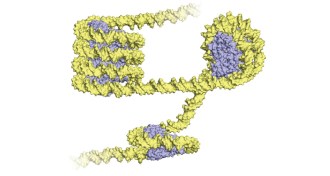 Genetics
GeneticsThe first look at how archaea package their DNA reveals they’re a lot like us
Archaea microbes spool their DNA much like plants and animals do.
-
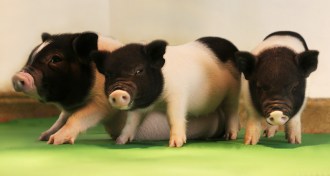 Genetics
GeneticsGene editing creates virus-free piglets
Pigs engineered to lack infectious viruses may one day produce transplant organs.
-
 Materials Science
Materials Science50 years ago, steel got stronger and stretchier
Today, scientists are still trying to improve steel.
-
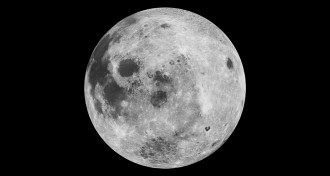 Planetary Science
Planetary ScienceMoon had a magnetic field for at least a billion years longer than thought
The moon’s magnetic field could have lasted until about a billion years ago.
-
 Health & Medicine
Health & MedicineMore U.S. adults are drinking, and more heavily
Heavy drinking and alcohol use disorders have risen in the United States, at a cost to society’s health.
-
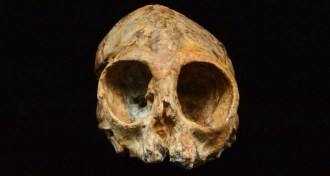 Anthropology
AnthropologyInfant ape’s tiny skull could have a big impact on ape evolution
Fossil comes from a lineage that had ties to the ancestor of modern apes and humans, researchers argue.
By Bruce Bower -
 Animals
AnimalsA lot of life on planet Earth is awful and incredible
Acting Editor in Chief Elizabeth Quill discusses how the natural world feeds our sense of wonder.
-
 Animals
AnimalsReaders fascinated by critters’ strange biology
Readers responded to fish lips, monkey brains, sunless tanner and more.
-
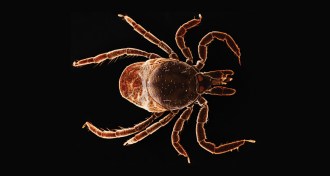 Animals
AnimalsTicks are here to stay. But scientists are finding ways to outsmart them
Researchers acknowledge that there’s no getting rid of ticks, so they are developing ways to make them less dangerous.
By Susan Milius -
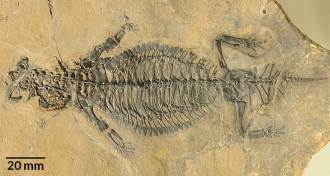 Animals
AnimalsFossil find suggests this ancient reptile lurked on land, not in the water
An exquisitely preserved fossil shows that an ancient armored reptile called Eusaurosphargis dalsassoi wasn’t aquatic, as scientists had suspected.
-
 Psychology
PsychologyA look at Rwanda’s genocide helps explain why ordinary people kill their neighbors
New research on the 1994 Rwanda genocide overturns assumptions about why people participate in genocide. A sense of duty, not blind obedience, drives many perpetrators.
By Bruce Bower -
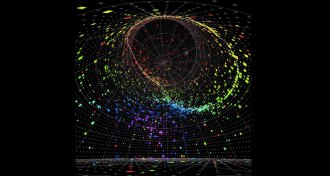 Particle Physics
Particle PhysicsNeutrino experiment may hint at why matter rules the universe
T2K experiment hints at an explanation for what happened to antimatter.